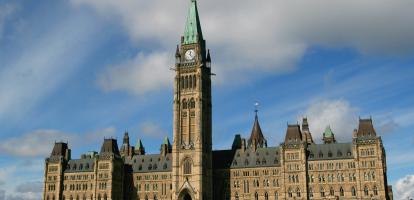For years, criminals from around the world have been secretly investing their proceeds of crime in Canadian real estate simply by registering the property in the name of a private corporation, partnership or trust. That will soon come to an end in British Columbia. Well, almost.
The B.C. government recently introduced the Land Owner Transparency Act, which requires corporations, partnerships and trusts to disclose the names of the individuals who control or own them. Those names are then placed on a public registry for all the world to see.
This far-reaching legislation applies 21st-century technology to combat the growing problem of money laundering. All Canadians should applaud the B.C. government for its leadership and resolve.
But there’s a fundamental problem.
International money launderers have moved their proceeds of crime through various companies and trusts around the globe and then invested these proceeds in Vancouver real estate. Every step along the way, they have flouted the law. They are unlikely to stop now.
The new B.C. legislation requires all corporations, partnerships and trusts presently owning real estate in the province to complete an initial transparency report disclosing their beneficial owners. But many of the money launderers will choose to simply ignore that requirement because they face minimal risk of detection.
While corporations are easily identified as such by their name in the land registry, all other nominee owners are not. In other words, it is impossible to tell by the registered name whether “John Smith” is a trustee, a partner or simply an individual owning both the legal and beneficial interest in land.
That means individual trustees and partners who, on behalf of money launderers, have already purchased B.C. real estate can simply not comply with the requirement to file an initial transparency report. The chances of their being caught are minimal because, unlike a corporation, they are not easily identified as acting on behalf of third-party owners. And if caught, they can simply claim they didn’t know they had to make the filing, in which case they will likely get a minimal fine as punishment or, if caught after the six-year limitation period, no penalty at all.
This problem not only undermines the stated purpose of the requirement to file initial transparency reports (“to have a complete picture of beneficial ownership of land in British Columbia”) but it also means Vancouver will likely continue to have many vacant houses and artificially inflated home prices and rents.
That flaw in the legislation can be remedied by requiring that all registered owners of real estate file an initial transparency report. The administration of such filing requirement could be efficiently achieved by attaching the declaration form to the annual land tax notice and requiring the declaration be submitted at the time tax payments are remitted.
That universal disclosure requirement would force money launderers and their nominees to act. They either sell their real estate before the legislation comes into effect, thereby freeing up their vacant houses that helped cause rents and home prices to soar, or they file a false declaration of beneficial ownership. But they can no longer simply do nothing at minimal risk of detection or consequence.
The B.C. government has implemented powerful and far-reaching legislation to combat money laundering in real estate. Let’s hope they make it even better.
Kevin Comeau is a retired lawyer and anti-money laundering expert and a member of Transparency International Canada’s Working Group on Beneficial Ownership. He will speak at the Institute's FSRI Council on April 17th, 2019.





